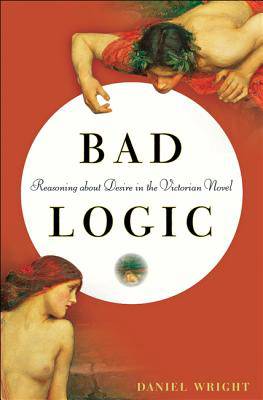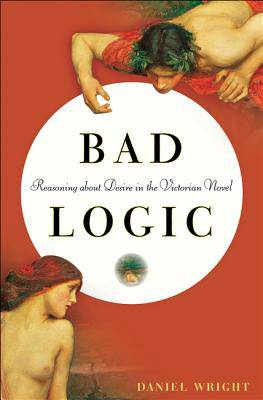
- Retrait gratuit dans votre magasin Club
- 7.000.000 titres dans notre catalogue
- Payer en toute sécurité
- Toujours un magasin près de chez vous
- Retrait gratuit dans votre magasin Club
- 7.000.000 titres dans notre catalogue
- Payer en toute sécurité
- Toujours un magasin près de chez vous
Description
How did the Victorians think about love and desire?
"Reader, I married him," Jane Eyre famously says of her beloved Mr. Rochester near the end of Charlotte Brontë's novel. But why does she do it, we might logically ask, after all he's put her through? The Victorian realist novel privileges the marriage plot, in which love and desire are represented as formative social experiences. Yet how novelists depict their characters reasoning about that erotic desire--making something intelligible and ethically meaningful out of the aspect of interior life that would seem most essentially embodied, singular, and nonlinguistic--remains a difficult question.
In Bad Logic, Daniel Wright addresses this paradox, investigating how the Victorian novel represented reasoning about desire without diluting its intensity or making it mechanical. Connecting problems of sexuality to questions of logic and language, Wright posits that forms of reasoning that seem fuzzy, opaque, difficult, or simply "bad" can function as surprisingly rich mechanisms for speaking and thinking about erotic desire. These forms of "bad logic" surrounding sexuality ought not be read as mistakes, fallacies, or symptoms of sexual repression, Wright asserts, but rather as useful forms through which novelists illustrate the complexities of erotic desire.
Offering close readings of canonical writers Charlotte Brontë, Anthony Trollope, George Eliot, and Henry James, Bad Logic contextualizes their work within the historical development of the philosophy of language and the theory of sexuality. This book will interest a range of scholars working in Victorian literature, gender and sexuality studies, and interdisciplinary approaches to literature and philosophy.
Spécifications
Parties prenantes
- Auteur(s) :
- Editeur:
Contenu
- Nombre de pages :
- 232
- Langue:
- Anglais
Caractéristiques
- EAN:
- 9781421425177
- Date de parution :
- 16-04-18
- Format:
- Livre relié
- Format numérique:
- Genaaid
- Dimensions :
- 152 mm x 231 mm
- Poids :
- 498 g







